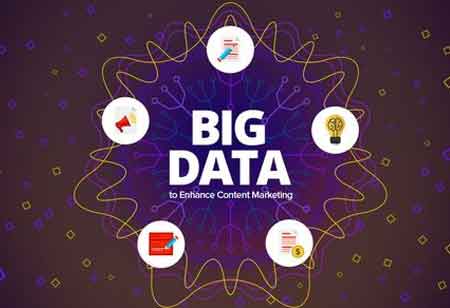THANK YOU FOR SUBSCRIBING
4 Ways how Big Data is Influencing Content Marketing
It is changing the business landscape by collecting a significant volume of data that explores trends and patterns of customers and the markets, allowing businesses to reshape their business models to reflect the new and invaluable insights.

By
Apac CIOOutlook | Wednesday, August 26, 2020
Stay ahead of the industry with exclusive feature stories on the top companies, expert insights and the latest news delivered straight to your inbox. Subscribe today.
It is changing the business landscape by collecting a significant volume of data that explores trends and patterns of customers and the markets, allowing businesses to reshape their business models to reflect the new and invaluable insights.
Fremont, CA: Big data analytics is the process of analyzing and gathering information from data sets that are complicated for traditional data-processing software.
With substantial volumes of data sets, content marketers can strategize better on how to make effective marketing plans and use that insight to specify the types of contents and topics that are more engaging to the audience.
Here are four ways of how big data is influencing content marketing:
Quality Content
Knowing the goals and audience should impact the quality of the businesses’ content. Advanced knowledge lets the business be more aware of who they are addressing to personalize the content in a more informed and meaningful way to meet their requirements.
Big data helps content marketers to create more customer-centric content, resulting in more response rates and traffic.
Gaining Visibility
One of the key factors of content marketing is to gain visibility and expand the business by finding creative ways to share the content and message to a broader audience.
By analyzing the industry and competitors, markets can understand how they can improve their strategy and gain insights on where they can post their content to achieve greater results. Big data helps marketers access enormous volumes of information to discover and anticipate the best posting opportunities for their plan and business.
Understanding Business Goals
Before creating a marketing strategy, it is important to know the goals of the project. It requires examining the business to know what improvements are required to resolve issues and push the business to higher ground.
With an inadequate amount of information, it can be challenging to collect the goals. But big data can help make this process simpler. Businesses can access and gather information from the big data that can be filtered and uncover the patterns needed to enhance the business. Big data identifies the gaps in the business plan and helps businesses predict their marketing strategy.
Understanding the Audience
A targeted audience is a group of people marketers know their content or product will influence. This pool is what marketers attempt to reach as it has a higher return on investment, unlike a broad audience.
To reach a targeted audience, markets need to know their audience and recognize their expectations, needs, and wants. Marketers can now examine their audience to a significant extent, with the help of big data. The vast amount of data helps identify trends in human behavior, helping marketers understand their traits to improve strategy plans for reaching and impacting their target audience.





